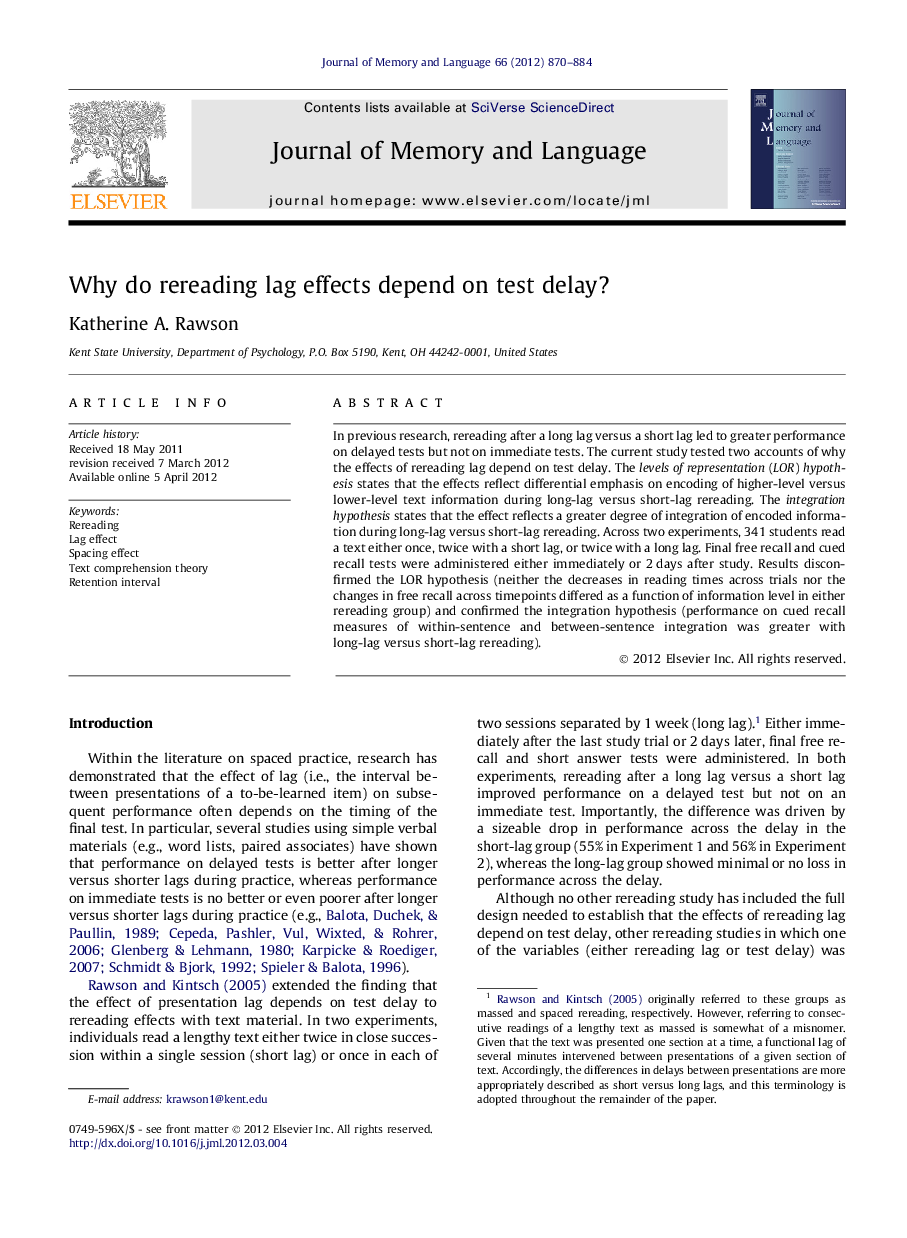| Article ID | Journal | Published Year | Pages | File Type |
|---|---|---|---|---|
| 931952 | Journal of Memory and Language | 2012 | 15 Pages |
In previous research, rereading after a long lag versus a short lag led to greater performance on delayed tests but not on immediate tests. The current study tested two accounts of why the effects of rereading lag depend on test delay. The levels of representation (LOR) hypothesis states that the effects reflect differential emphasis on encoding of higher-level versus lower-level text information during long-lag versus short-lag rereading. The integration hypothesis states that the effect reflects a greater degree of integration of encoded information during long-lag versus short-lag rereading. Across two experiments, 341 students read a text either once, twice with a short lag, or twice with a long lag. Final free recall and cued recall tests were administered either immediately or 2 days after study. Results disconfirmed the LOR hypothesis (neither the decreases in reading times across trials nor the changes in free recall across timepoints differed as a function of information level in either rereading group) and confirmed the integration hypothesis (performance on cued recall measures of within-sentence and between-sentence integration was greater with long-lag versus short-lag rereading).
► Long versus short lag rereading improves performance on delayed but not immediate tests. ► Two explanations include the levels hypothesis and the integration hypothesis. ► Rereading lag was long or short, and final tests were immediate or 2 days later. ► Performance did not differ with information level, disconfirming levels hypothesis. ► Long lag rereading improved integration, confirming the integration hypothesis.
